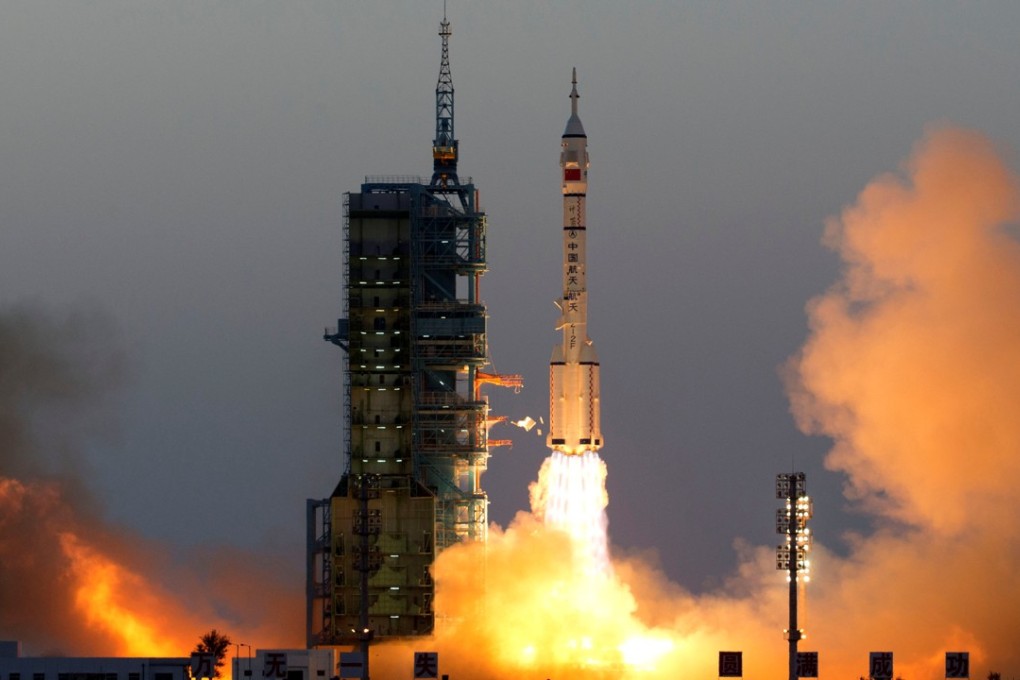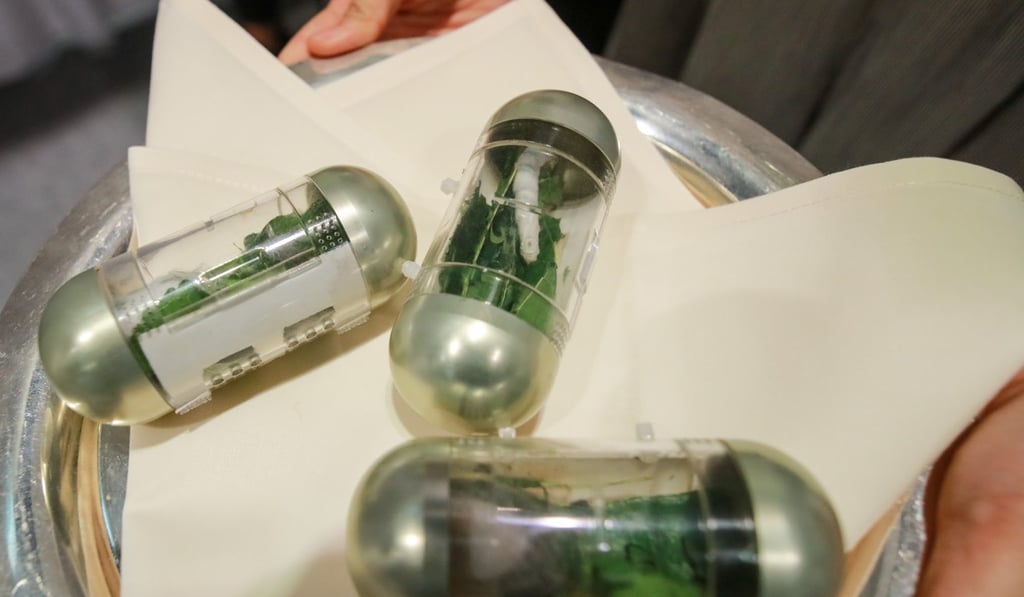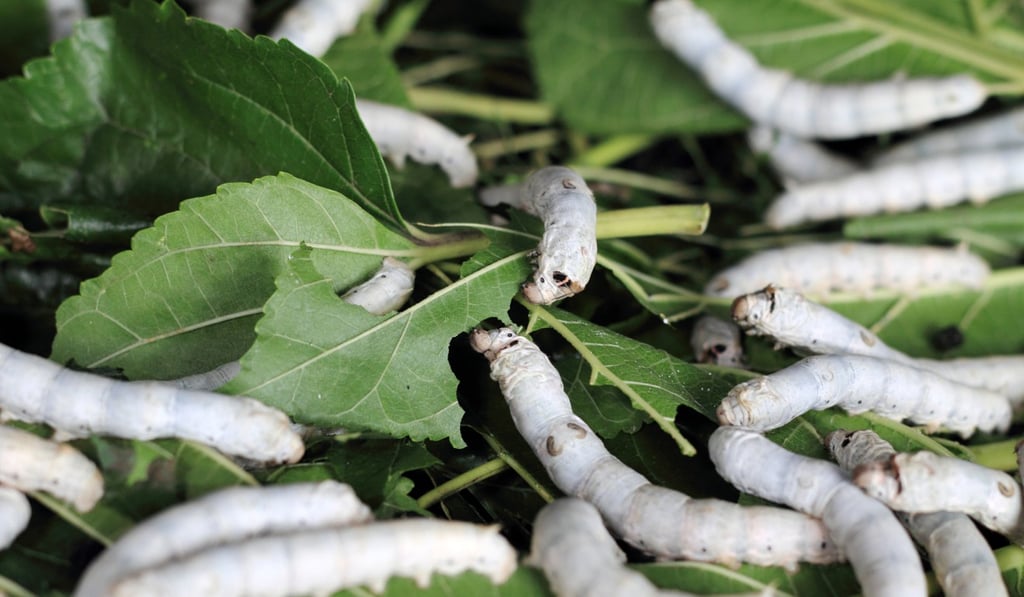Advertisement
Their parents went to space, but these silkworms are settling for a secondary school in Hong Kong
Descendants of silkworms taken aboard manned Chinese space mission donated to Tseung Kwan O school that originally suggested the idea
Reading Time:1 minute
Why you can trust SCMP
0

A dozen silkworms whose parents took a spin around the planet have been donated to a Hong Kong secondary school.
Last October, six of the insects were taken on-board the Shenzhou-11 spacecraft, China’s sixth manned space mission and its longest to date, which saw two astronauts, Jing Haipeng and Chen Dong, spend 30 days orbiting in the Tiangong-2 space laboratory.

The out-of-this-world experiment to study how the silkworms transformed in a weightless environment had been suggested by pupils at Christian and Missionary Alliance Sun Kei Secondary School in Tseung Kwan O. The initial results showed that the silk spun by worms with extraterrestrial experience was stronger than those on Earth.
On Monday, the astronauts donated the descendants of these “space silkworms” to the school, who will study them to see if the favourable variation will be inherited. Chow Wing-hei, a physics teacher at the school and in charge of the silkworm project, said pupils would take turns to care for the silkworms in the school’s laboratory.

Advertisement
Select Voice
Choose your listening speed
Get through articles 2-3x faster
1.1x
220 WPM
Slow
Normal
Fast
1.1x